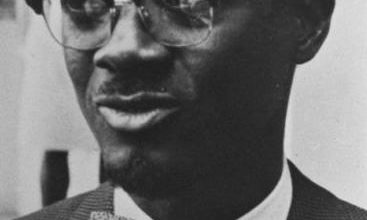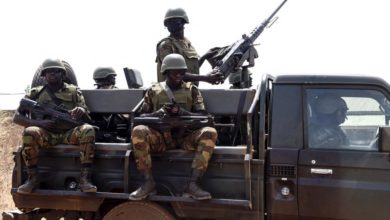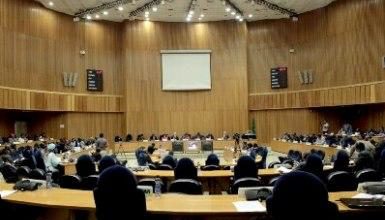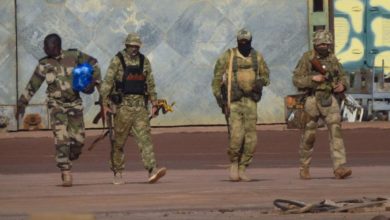Putin’s other war zone — Africa — goes barely noticed
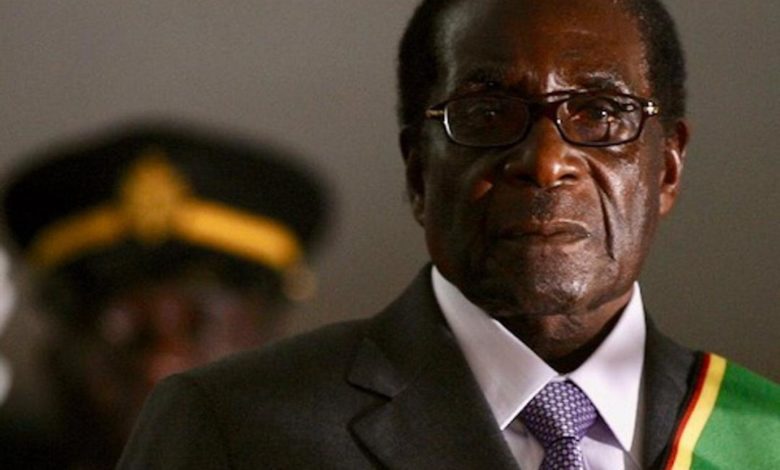
press/slma
By: Francis Karugu
As Vladimir Putin wages war in Ukraine, little attention is being paid to how he has long waged a quiet campaign to win the hearts of African strongmen.
Over the last decade, Russia’s involvement in Africa largely escaped world attention as the world focused more on ISIS in Iraq and Syria and the Taliban in Afghanistan. As a result, Russia stealthily cemented ties with many African countries during this period, including Togo, Equatorial Guinea, Gabon, Uganda, and the Central Africa Republic.
The two dictators spoke like economic sanctions are a good thing, an honor even.
Putin’s Russia uses private military companies to support dictatorial African regimes in Sudan and the Central Africa Republic. From the Central African Republic, to Chad, Congo, Rwanda, and Sudan to Uganda, Putin’s weaponry and military training have kept African dictators as ruthless as Putin in power.
Name any dictator in Africa — Teodoro Obiang Nguema of Equatorial Guinea, Salva Kiir of South Sudan, Yoweri Kaguta Museveni of Uganda, the late John Pombe Magufuli of Tanzania, Dennis Sassou Nguesso of Congo — and you will find unholy alliances with Vladimir Putin.
Putin hosted an initial Russia-Africa summit at the Black Sea resort city of Sochi in 2019. All 54 African nations sent delegates. They discussed increasing sales of Russian grains and other foodstuffs to Africa, along with killing machines.
Weapons account for about 40% of Russian exports to Africa.
A Kremlin spokesman put the value of Russian food exports to Africa at $25 billion and weaponry at $15 billion. That is just shy of 10% of Russian exports that year.
During the summit, there were also discussions to allow more Russian deals to mine metals and extract oil in Africa. More oil and minerals mean more money to Russia for wheat and weapons.
What Putin had in common with some of his guests was lust for power and murderous hatred of dissent.
Misery companions
Misery loves company. Putin finds his in African despots who love Putin’s style of extinguishing dissent at home and using military firepower to stay in power.
Consider Robert Mugabe, the strongman who ruled Zimbabwe for 47 years. He flew to Moscow in 2015 ostensibly to discuss the defeat of Nazi Germany 70 years before. But this was not long after the West had placed economic sanctions on Russia for invading Ukraine’s Crimea, the first illicit seizure of land from a sovereign country since WWII ended and a precursor to the 2022 invasion of the rest of Ukraine, which is roughly the size of Texas.
Mugabe’s playful greeting to Putin: “You have sanctions, we have sanctions!”
The two dictators spoke like economic sanctions are good, like valorous medals or even scars from battlefield bravery. But these two earned their economic scars on the wrong battlefields through atrocities and oppression that made their countries pariah nations with troubled economies and widespread poverty.
Rigged Elections
Mugabe rigged elections and ruled Zimbabwe with an iron fist, just as Putin does in Russia. Unlike Putin, however, Mugabe ruled in an unholy alliance with his wife Grace. Her parading about wearing expensive high fashion in a desperately poor country earned her the nickname “Gucci” Grace Mugabe.
Putin smiled broadly during a photo-op with Mugabe, the man who turned an African breadbasket into a basket case. Zimbabwe’s economy per capita, measured in purchasing power equivalent dollars, is a scant $1,214. At the same time, neighboring Botswana’s economy generates five times as much, Russia at 11 and the United States at 54 times as much.
Putin remains in power as a modern tsar while Mugabe was ousted in a 2017 coup, his power eroded by years of economic decline and brutal repression of critics. He died in 2019, but that didn’t weaken the ties between Harare and Moscow.
The current ruler of Zimbabwe, Emmerson Mnangagwa, sided with Putin by abstaining from a United Nations debate over sanctions on Russia for its vicious invasion of Ukraine.
Mnangagwa is Mugabe’s former vice president, part of a thieving regime.
Since 2006, no Ugandan election can be said to have been free and fair. Uganda’s army is a ruffian collection of underpaid, sometimes undisciplined, gun-toting youth committing war crimes in Africa’s Great Lakes region – Lakes Victoria, Tanganyika, and Malawi — which hold even more water than the North American Great Lakes.
Lousy Pay
Putin’s army is comprised mainly of conscripts paid just $30 a month. Poor pay and draftee status may explain the Russian army’s appallingly poor performance in Putin’s current war against Ukraine.
Museveni used to be a darling of the West, primarily because of his rhetoric on democracy, his successful campaign against HIV infection and his contribution to the so-called war on terror, especially in the Horn of Africa.
Just as Putin makes the absurd claim that he is the legitimately elected leader of the Russian Federation, fellow dictator Museveni made the laughable claim last year that Uganda had the best democracy in the world.
Putin sent Semivolos Vladlen to Uganda as his ambassador in 2021 with a new mission. In a hushed brief, both parties indicated that Russia and Uganda would be entering into a serious partnership that will mix oil and military weaponry.
Oil Discovered
In the last decade, oil was discovered in Uganda, which could transform Uganda’s economy if petroleum exports begin as expected in 2024 or 2025. Revenue from black gold emboldened Museveni, who tightened his authoritarian grip on power.
Museveni holds his defense sector close to his chest, just like Putin in Russia. Oil money to buy weapons and pay soldiers is of close interest to Museveni as he works to stay in power for life.
Museveni runs the Ugandan People’s Defense Forces as his personal enterprise. It’s not exactly closely supervised in its outreach. Click on the official website URL produces a “this site can’t be reached” message.
Museveni came to power in 1986 with a coup staged by his guerrilla force, the National Resistance Army. He then became the latest in a long line of Ugandan military rulers.
The Resistance Army was among the first rag-tag militias in Africa that used child soldiers deployed to commit brute offensives on civilian targets. This army then converted into Uganda’s ruling political party, the National Resistance Movement.
That successful conversion from guerrilla military force to political party inspired other movements in East Africa, the African Great Lakes region and West Africa. In the 1990s and the 2000s, dozens of militias applied the Uganda model to disturb the peace, capture power and fight other guerilla movements.
Inside Uganda, Joseph Kony’s Lord’s Resistance Army, and the ISIS-linked Allied Democratic Force, used Museveni’s military strategies.
Paul Kagame, the Rwandese strongman, created a child-soldier militia to capture power. So did the late Laurent Kabila, who toppled Congolese dictator Mobutu Sese Seko. Kagame and Kabila were proteges of Museveni. In fact, Paul Kagame was a general in Museveni’s NRA before forming the similarly organized Rwandan Patriotic Front, which captured power in Rwanda in 2000.
America Looks Away
These warlords rose to power in the 1990s, soon after the Iron Curtain fell with the 1989 collapse of the old Soviet regime in Moscow. Washington and Europe eased their involvement in Africa, contributing to the vacuum in which the wannabe dictators used violence to attain power.
Museveni, Kagame and Kabila had earlier proclaimed their Communist-Marxist inclinations. All three received covert support from China and Russia through Tanzania, where Julius Nyerere built close ties to both Moscow and Beijing and promoted communist economic policies in rural areas. Such policies failed.
The World Bank in Washington and European countries were, at the same time, pushing for expanded private enterprise in Africa.
Museveni and Kagame quickly transformed into small “d” democrats and declared themselves champions of market economies while dropping their freedom-fighter and communist tags.
At the same time, their benefactors were also transforming. China was developing its state capitalism model, while in 1998 Putin took over Russia together with his band of oligarchs. They ended up with the wealth of the old Soviet which, in theory at least, belonged to the proletariat, the people.
In 2011, Uganda’s GDP was $26 billion. Military spending accounted for 4% of that, more than double the norm in Europe. Putin spends 4.3% of his economy on war and is the fourth largest weapons exporter.
Relying on Russia
With increasingly cold relations with the West, Uganda relies heavily on Russia to feed its heavy-handed military. In 2011, Uganda spent close to $1 billion on Russian military equipment, including six Sukhoi Su-30MK2 fighter planes.
At ceremonies during the delivery of the Russian jets, Museveni declared that, unlike the United States and Europe, Russia doesn’t interfere with the politics of Uganda.
Museveni meant that he was free to use Russian arms to extinguish internal political competition with no fear that Moscow would stop weapons sales.
Indeed, with his Russian-equipped army, Museveni constricts political space for competitors such as Kizza Besigye, who has been his most fervent opponent since 2006. More recently, Museveni unleashed his military on supporters of another competitor, Robert “Bobbi Wine” Kyagulanyi Ssentamu, during the 2021 elections in Uganda.
Soviet-style purge
Museveni also has been purging military comrades using Soviet tactics in a plot to ensure that his son, Gen. Muhoozi Kaneirugaba, will consolidate power and be able to succeed him.
The Muhoozi Project, as it is known in Uganda, is a plan to eliminate all competition — political, financial, military – to Museveni’s rule. Army rank and file must toe his line. Soldiers suspected of dissent are destroyed financially, exiled or killed.
Applying a Putin-style rulebook that brooks no dissent, Museveni uses three methods:
Consolidation of military power with himself as the top general while his son Muhoozi Kaneirugaba commands land forces.
Unleashing his police, whose leaders are military officers, on supporters of opponents such as Bobbi Wine and Kizza Besigye.
Eliminating internal opposition within ruling his NRM party.
This third method is perhaps the most important to Museveni. Only a few of the upper echelons from the original bush comrades remain today as Museveni is fast eliminating them through assassinations, exile, forced retirement and financial ruin.
Among those cast out are Gen. Mugisha Muntu (dishonorably discharged from the military, his businesses destroyed by the state); Gen. Henry Tumukunde (exiled and facing state-sponsored prosecutions on trumped-up charges); Gen. David Tiyefunza (exiled); Gen. Kale Kayihura (charged with high treason, stripped of rank and politically ruined).
Last year a rising political figure, Gen. Katumba Wamala, survived an assassination attempt.
When time runs out for Museveni, his intended successor may not be up to the job. While his favored son holds the rank of general, he is known as a spoiled brat, has no combat experience, and owes his good fortune entirely to his father’s largesse.
Museveni’s bush comrades despise the son.
A scheme known as the “Muhoozi Project” began a decade ago when Museveni brought his son Muhoozi into the army. Journalists who report on this are prosecuted, as are citizens who dare to speak up.
Paranoid Pals
Just like Putin, Museveni is a paranoid man fearful of those around him who might challenge his power.
This Putin-inspired pattern has been observed with other African strongmen. In Chad, military dictator Idris Deby kept an iron grip on the landlocked West African nation of more than 16 million people. After his assassination in 2021, the Russians continued supporting his successor, his son Mahamat Deby.
Putin has sold weapons to the Deby regime for over a decade, becoming the murderous regime’s primary backer.
At the same time, France and the United States helped prop up Deby’s government because of his support for counterterrorism operations in the Sahel and the Lake Chad basin while simultaneously turning a blind eye to his repression and violations of social and economic rights at home.
Since Deby’s assassination, Putin has deployed forces in Libya, Sudan, Central Africa Republic, and Nigeria. Russia is the main military ally of Chad’s neighbor to the south, the Central Africa Republic, where human rights abuses are routine.
In the Republic of the Congo, Putin’s oligarchs provide a lifeline for the dictatorial regime of Denis Sassou-Nguesso. Sassou-Nguesso, a military strong man, has been in power since 1979, except for a five-year hiatus between 1992 and 1997.
Congo’s National Petroleum Company, a government enterprise, has deep ties with Russia’s Pipe Metallurgical Co. The oil company has been a cash cow for the Sassou Nguesso family.
Russia’s Deputy Defence Minister, Alexander Fomin, acknowledged in 2018 that Congo has lots of Russian-made military and special hardware dating to Soviet times. The Putin-Nguesso alliance means newer Russian military and police equipment for the Congolese dictator. Russian specialists also train the Congolese army, police, and the presidential guard.
Awful as Russia’s invasion of Ukraine is, it is part of a pattern in which Putin seeks to buoy murderous dictators in his quest to destabilize democracies and create a new world order run by the unaccountable.
Source: Raw Story


